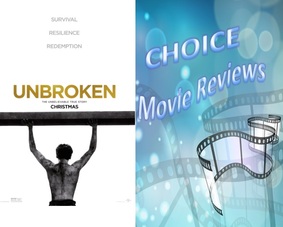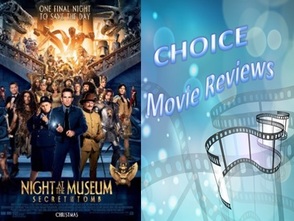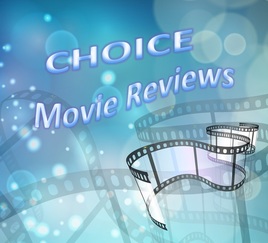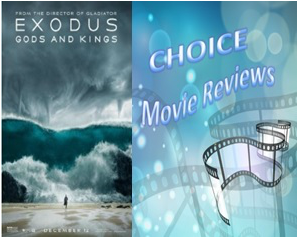
First, my score guide:
Quality: This score indicates entertainment value.
0 stars is horrible, while 5 stars is spectacular.
Political: This score addresses political messaging.
0 stars is aggressively anti-Conservative, while 5 stars is highly pro-Conservative. 3 stars is apolitical.
Moral/Religious (M/R): This score addresses moral and religious messaging.
0 stars is either intensely immoral or all-out, needless assault on Christianity. 5 stars is either great moral messaging or highly pro-Christian. 3 stars is inoffensive either way.
Quality: This score indicates entertainment value.
0 stars is horrible, while 5 stars is spectacular.
Political: This score addresses political messaging.
0 stars is aggressively anti-Conservative, while 5 stars is highly pro-Conservative. 3 stars is apolitical.
Moral/Religious (M/R): This score addresses moral and religious messaging.
0 stars is either intensely immoral or all-out, needless assault on Christianity. 5 stars is either great moral messaging or highly pro-Christian. 3 stars is inoffensive either way.
Unbroken
Quality – 4 stars, Political – 4 stars, M/R – 4 stars
Quality – 4 stars, Political – 4 stars, M/R – 4 stars
First, about the Rare Quality of Greatness
Life, for most of us, is that rather uneventful intermission between birth and death. We eat things—gotta eat, you know. We complain a lot. We vote for people to either rob others on our behalf, or prevent others from robbing us.
We diet—gotta diet, you know—while complaining a lot. Convinced we forever change the world by marching for legalized weed, we sustain our self-importance through watching people whose lives matter even less. Hence, reality TV.
We exercise a lot—gotta exercise, you know—after which we complain bitterly. Frustrated by dieting and exercise, we race across meadows to joyfully embrace more food. This brings great sorrow, so we return to the streets, marching to rescue flourishing polar bear populations with exorbitant tax subsidies—all while checking our wrist-held calorie counters. Sometimes, we look down too long, veering off into different marches altogether, but no matter…we’re burning carbs here…making a difference…
Hours later, we’re discovered face down, having created snow angels in heaps of powdered donuts. The cycle begins anew.
My point? Merely this: While greatness lies within each human soul, few ever grasp it. Too often, life becomes a series of surrenders—I need this, I’m lost without that, I fear him, they’re denying me that—and comfort is found in blaming others.
And Now, the Movie
Lou Zamparini, on the other hand, was exceptional. In “Unbroken,” director Angelina Jolie shows us a life so amazing, the film must first remind us it’s a true story. Lou was an elite Olympic runner. Lou was a bombardier in WWII, whose plane crashed in the Pacific. Lou and a fellow crewmate survived 45 days on a raft in shark-infested waters. Lou was taken prisoner, then tortured mercilessly by a sadistic Japanese guard. Lou was human, but tough. He never gave up.
Feel guilty yet? Need a donut? I’ll take two.
“Unbroken” sometimes seems dispassionate, as Jolie apparently wants us moved by a raw unfolding of events. Jack O’Connell (playing Lou) portrays a young man who, though incredibly impressive, is not very deep. Watching his life, we realize there is no mystical secret to becoming exceptional; just a decision to do so. “If I can take it, I can make it,” says Lou.
This film’s torture is the real kind—not some sanitized version upsetting Dianne Feinstein (though it still falls well short of what we’d receive from jihadists). Lou’s torturer is a head guard nicknamed “The Bird,” whose sick fascination with Lou drives him to senseless wrath. Superbly played by Japanese actor, Miyavi, The Bird is deeply conflicted; one moment self-loathing, the next arrogant. The beatings become somewhat monotonous, bogging down the film’s pace, but this conveys a bleak perpetuity that is essential to the plot. By the end, Jolie—a proud Hollywood liberal—has nonetheless reminded us how savage other nations can be when compared to the good ole USA.
Lou’s experience speaks powerfully for us today. Our lives, pampered by pleasures and thrills, can become so sheltered that we must create drama. “I can’t believe he said this.” “I can’t believe they did that.” Everything…matters to us.
But when measured against lives like Lou’s, I wonder if I’ve really been living, or just aging. Perhaps I’ve been broken by the most withering force of all: Comfort.
For perspective alone, I’m honored to have spent a couple hours in Lou’s life. I’m better for it.
Rating: PG-13, for war-related brutality and brief backside nudity.
Life, for most of us, is that rather uneventful intermission between birth and death. We eat things—gotta eat, you know. We complain a lot. We vote for people to either rob others on our behalf, or prevent others from robbing us.
We diet—gotta diet, you know—while complaining a lot. Convinced we forever change the world by marching for legalized weed, we sustain our self-importance through watching people whose lives matter even less. Hence, reality TV.
We exercise a lot—gotta exercise, you know—after which we complain bitterly. Frustrated by dieting and exercise, we race across meadows to joyfully embrace more food. This brings great sorrow, so we return to the streets, marching to rescue flourishing polar bear populations with exorbitant tax subsidies—all while checking our wrist-held calorie counters. Sometimes, we look down too long, veering off into different marches altogether, but no matter…we’re burning carbs here…making a difference…
Hours later, we’re discovered face down, having created snow angels in heaps of powdered donuts. The cycle begins anew.
My point? Merely this: While greatness lies within each human soul, few ever grasp it. Too often, life becomes a series of surrenders—I need this, I’m lost without that, I fear him, they’re denying me that—and comfort is found in blaming others.
And Now, the Movie
Lou Zamparini, on the other hand, was exceptional. In “Unbroken,” director Angelina Jolie shows us a life so amazing, the film must first remind us it’s a true story. Lou was an elite Olympic runner. Lou was a bombardier in WWII, whose plane crashed in the Pacific. Lou and a fellow crewmate survived 45 days on a raft in shark-infested waters. Lou was taken prisoner, then tortured mercilessly by a sadistic Japanese guard. Lou was human, but tough. He never gave up.
Feel guilty yet? Need a donut? I’ll take two.
“Unbroken” sometimes seems dispassionate, as Jolie apparently wants us moved by a raw unfolding of events. Jack O’Connell (playing Lou) portrays a young man who, though incredibly impressive, is not very deep. Watching his life, we realize there is no mystical secret to becoming exceptional; just a decision to do so. “If I can take it, I can make it,” says Lou.
This film’s torture is the real kind—not some sanitized version upsetting Dianne Feinstein (though it still falls well short of what we’d receive from jihadists). Lou’s torturer is a head guard nicknamed “The Bird,” whose sick fascination with Lou drives him to senseless wrath. Superbly played by Japanese actor, Miyavi, The Bird is deeply conflicted; one moment self-loathing, the next arrogant. The beatings become somewhat monotonous, bogging down the film’s pace, but this conveys a bleak perpetuity that is essential to the plot. By the end, Jolie—a proud Hollywood liberal—has nonetheless reminded us how savage other nations can be when compared to the good ole USA.
Lou’s experience speaks powerfully for us today. Our lives, pampered by pleasures and thrills, can become so sheltered that we must create drama. “I can’t believe he said this.” “I can’t believe they did that.” Everything…matters to us.
But when measured against lives like Lou’s, I wonder if I’ve really been living, or just aging. Perhaps I’ve been broken by the most withering force of all: Comfort.
For perspective alone, I’m honored to have spent a couple hours in Lou’s life. I’m better for it.
Rating: PG-13, for war-related brutality and brief backside nudity.



 RSS Feed
RSS Feed